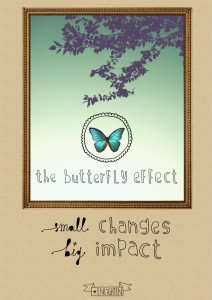I’m thrilled to be sharing this brilliant post by a colleague I adore; the always-wise Dr Karen Brooks. This was first published by The Courier Mail, 26th May.
I had the opportunity to talk to this on channel 7’s The Morning Show. You may watch this segment below.
At the Positive Schools Mental Health and Wellbeing Conference held at the Brisbane Convention Centre last week, teachers were told the emphasis on self-esteem in education and parenting has failed our children.
Rather than creating happy, confident kids, the self-esteem movement has contributed to what behavioural psychiatrist Dr David Sack calls “a generation of self-obsessed, irresponsible and unmotivated kids”.
Other experts describe kids unable to deal with adversity, anti-social behaviour, gross egotism, selfishness and an overweening sense of entitlement.
Described sometimes as cottonwool, eggshell and even teacup kids (because they’re so fragile), children raised under the self-esteem banner have no resilience and crumble at the first sign of criticism or difficulty.
Where and how did something so well-intended go so wrong?
The self-esteem movement began in 1969 with the publication of Nathaniel Braden’s book, The Psychology of Self-Esteem. Over the next 30 years, his idea that high self-esteem was the most valuable gift we can give to children was absorbed into the popular consciousness, the education system and parenting.
Evidence of its pervasiveness can also be seen in reality TV and the huge self-help industry, including motivational speakers.
But it seems as if the ideas and methodologies Braden spawned have backfired.
Deakin University Adjunct Professor Helen McGrath, argues “… a lot of the people who gloat about how to develop self-esteem are now writing about how this is actually a dangerous thing to do because what we are really doing is producing kids who are narcissistic because we focus too much on telling them how good they are, how wonderful they are, how everything they do is fantastic”.
Some have been taught to have no resilience and crumble at the first sign of difficulty.
Some have been taught to have no resilience and crumble at the first sign of difficulty.
Handing out ribbons to every child in a race; discouraging competition, ensuring no report card contains words that might offend, upset, or indicate (God forbid) how ordinary or bad a child’s performance at school really is, we’ve created a conformists’ paradise of mediocrity, where those at the top are given the same kind of accolades as those at the bottom and no one strives anymore.
After all, what’s the point when everyone is “special”, “gifted” and “smart”?
Focused on showering praise and positive comments upon our kids to shore up self-esteem, even when they don’t deserve them, it’s only recently we’ve noted the concomitant rise in depression, body dysmorphia, bullying and anxiety.
Discouraged from giving honest critiques of students’ abilities and understandably nervous about the fallout when they do, teachers are forced to pander to the ideals spouted in this outdated and hideously damaging self-esteem movement.
The consequences of this are not only a dumbing-down of every level of education but a fear of candid and constructive feedback – the cornerstones of life-learning. Parents who fight their kids’ battles – whether it be poor test results, being left out of a team or bad behaviour in the classroom, are teaching kids they don’t need to deal with adversity, change their manner or try harder either – not when mum or dad steps into the ring on their behalf.
Yet kids only blossom when they can move out their parents’ shadows.
There’s no doubt that social networking facilitates narcissism, encouraging a generation to use any means at their disposal to shore up their fragile self-esteem and seek approval (“likes”). In the cyberworld, increasing risks are taken to maintain a distorted sense of self-importance and relevance – think of sexting.
Dr Lauren LaPorta, chairman of the department of psychiatry at St Joseph’s Regional Medical Centre in New Jersey, argues that through social media, “Relationships become shallower and more fleeting; self-interest exceeds the common good. The costs of narcissism, then, are paid by the society at large.”
Dannielle Miller, CEO of Enlighten Education, who runs self-esteem and school-to-work-transition workshops for young people, believes that self-esteem is all about connectedness, compassion and community – an ability to empathise with others. She says in order to value yourself, you must value the person next to you. Appreciating the skills you have, upskilling where necessary, she encourages young people to respect what others bring to situations, to be prepared to start at the bottom and to adapt.
Like many other experts, Miller believes high self-esteem isn’t the problem as much as false self-esteem. Steve Baskin, writing in Psychology Today, would agree. “Self-esteem is not something conferred, it is earned through taking risks and developing skills. When children stretch themselves, they expand their sense of their own capability and then feel confident to tackle the next challenge. Confidence comes from competence – we do not bestow it as a gift.”
In other words, despite what Braden argued in the 1960s, self-esteem does not cause high grades, high grades (earned through intellect, study, dedication, passion and a combination of all these) cause high self-esteem.
In shielding our kids from the vagaries of life, we’re doing them a huge disservice. We insulate them from experiences that encourage growth, mental toughness and build healthy self-esteem. Worse, we reinforce the notion they’re not capable of coping on their own.
If we want to prepare our kids for adult life – one that’s often harsh – then we owe it to them to give them a gift all right: resilience.
Dr Karen Brooks is an associate professor at the UQ Centre for Critical and Cultural Studies.
